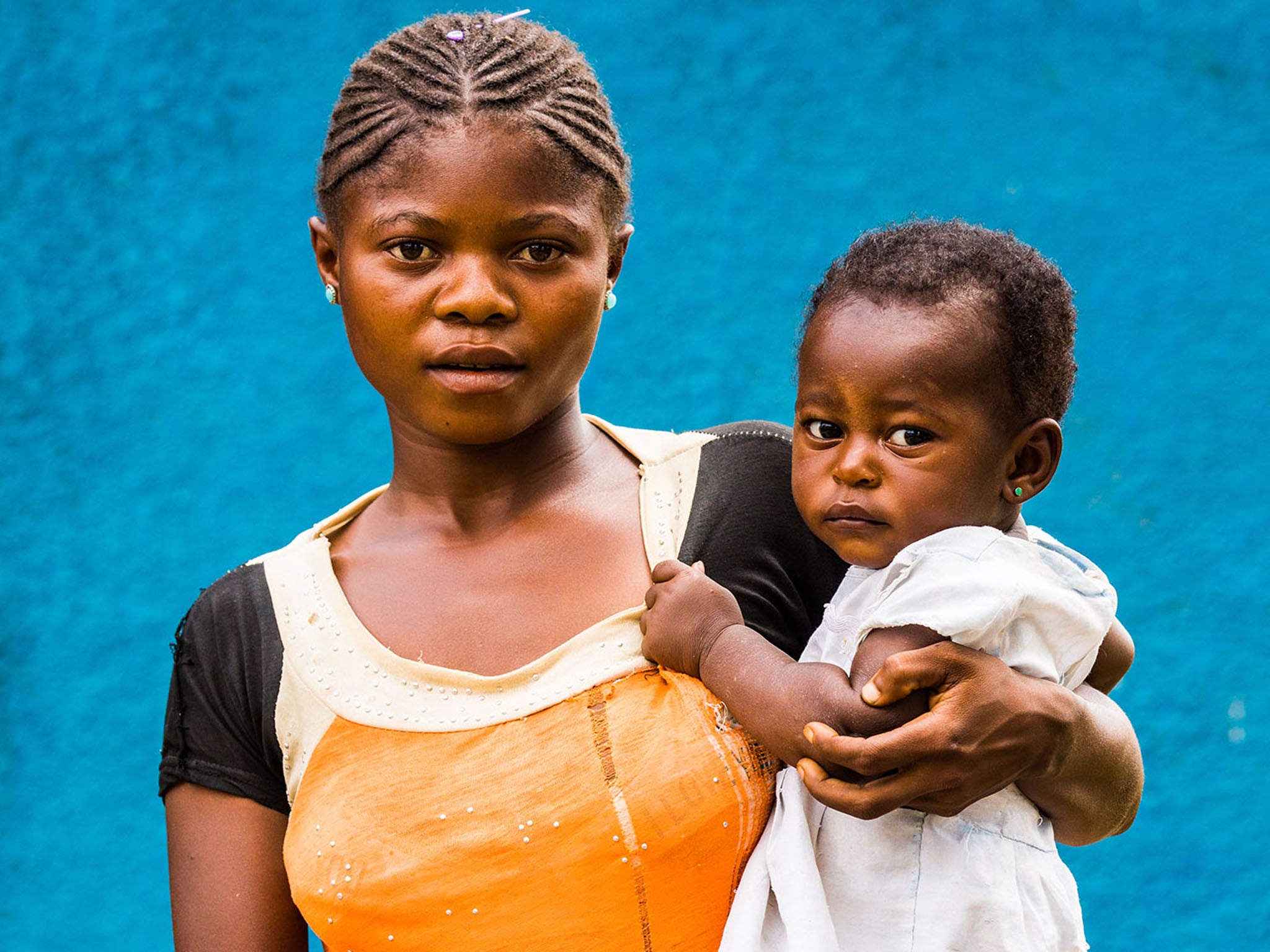A children's crisis in photos: Coping with the impact of conflict in the Democratic Republic of the Congo
Exclusive images from Unicef by Vincent Tremeau tell the story of families on the move and trying to survive under terrible conditions

When horrific violence erupted across the Kasai region of the Democratic Republic of the Congo in 2016, hundreds of thousands of people ran for their lives. They were forced to abandon their homes, villages and, in some cases, older or ailing family members. Many of those who had to flee were children. The most fortunate children and families found refuge with relatives or friends in calmer parts of the region. But many more were internally displaced, living under the open sky amid the trees and bushes of the vast, unforgiving savannah.
These families on the move had no access to healthcare, food or safe water. They had no matches to light a fire, no mosquito nets to protect them from malaria. Months of desperate existence followed. With nothing shielding them from the threats they faced – ranging from snakebites to waterborne illnesses – many people fell ill and died. The rest struggled to stay alive as fighting raged on around them.
Today, despite a lull in the fighting since the second half of 2017, waves of displacement continue because of persistent insecurity and fears of resurgent violence. Where the conflict has abated, some displaced people are returning to what is left of their villages. Often, they find that their homes and all of their possessions and livestock have been destroyed or stolen. According to the United Nations Office for the Coordination of Humanitarian Affairs, 3.8 million people in the Kasai region are in need of humanitarian assistance, including 2.3 million children. What is happening in Kasai is truly a children’s crisis.
Violence and insecurity in the Democratic Republic of the Congo continues to seriously impede access to critical services for millions of children country-wide. As a result of the continuing conflict, more than 13 million people across the country, including 7.9 million children, need humanitarian assistance. Many people are also internally displaced; about 7.7 million people are facing severe food insecurity; and at least 1.9 million children under the age of five are suffering from severe acute malnutrition.
In the Kasai region, the needs of displaced and returning families remain enormous as a result of violence, mass displacement and reduced agricultural production over the past 18 months. Severe food insecurity now affects large parts of the volatile region, leaving most households unable to work their land to grow crops, and little produce to buy or sell at local markets. An estimated 400,000 children under the age of five in the region are severely malnourished and are at risk of dying if not reached with urgent life-saving health and nutrition assistance.
As part of its multi-sectoral response to the emergency, Unicef has scaled up integrated health, water, sanitation and hygiene, nutrition, education, protection in the country, with a focus on the Kasai and eastern regions. In response to the nutrition crisis in the Kasai region, Unicef support includes treatment and therapeutic care for children 6-59 months old with severe acute malnutrition. In areas affected by conflict and disease outbreaks, Unicef and partners have also stepped up efforts to improve children’s access to primary health care in communities and health centres.
Unicef is calling upon all parties to the conflict, and the international community, to take urgent action on three key priorities: stopping the violence against children, ensuring access to essential services for all children and providing support for sustained humanitarian assistance.
Join our commenting forum
Join thought-provoking conversations, follow other Independent readers and see their replies
Comments
Bookmark popover
Removed from bookmarks